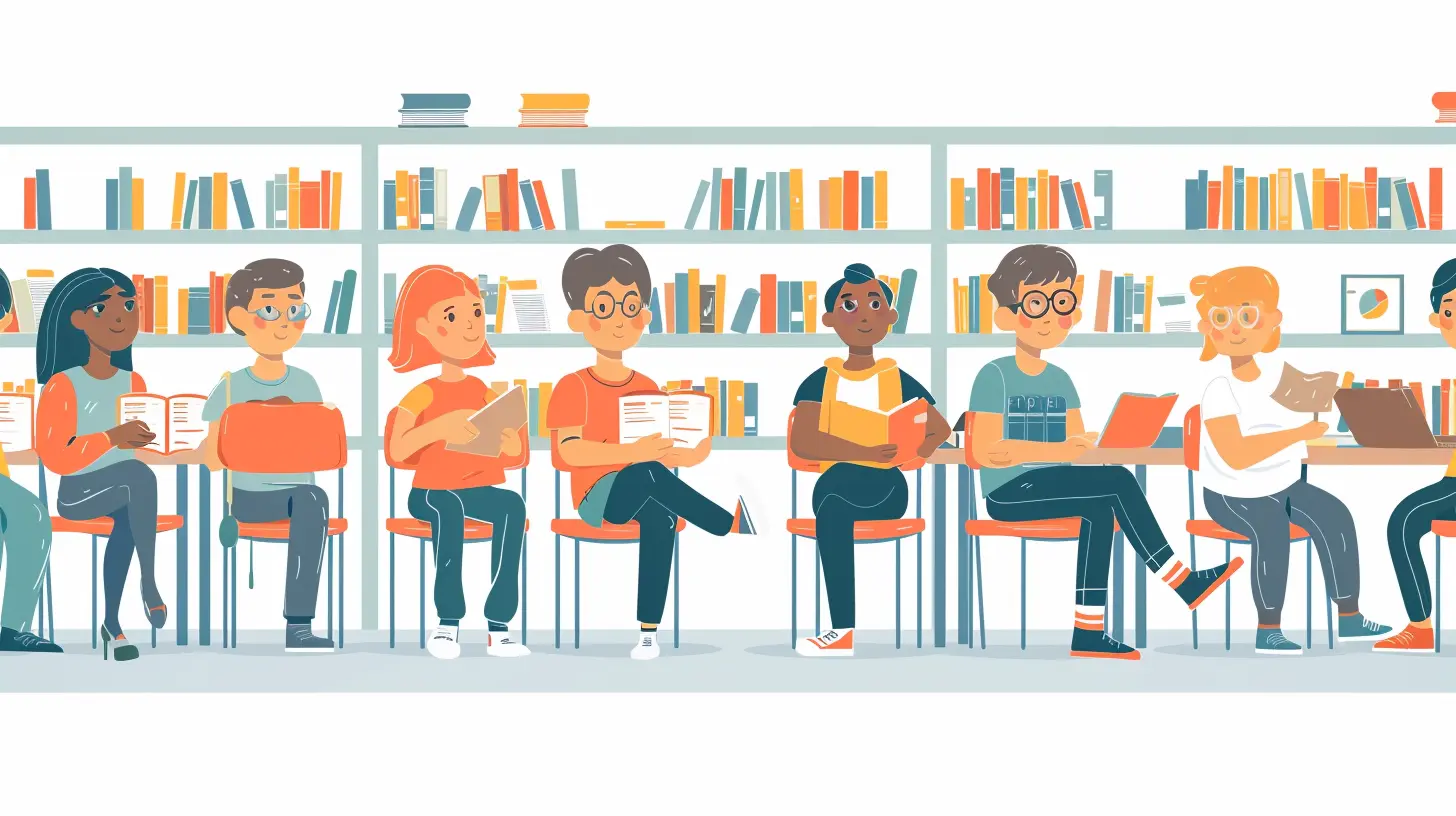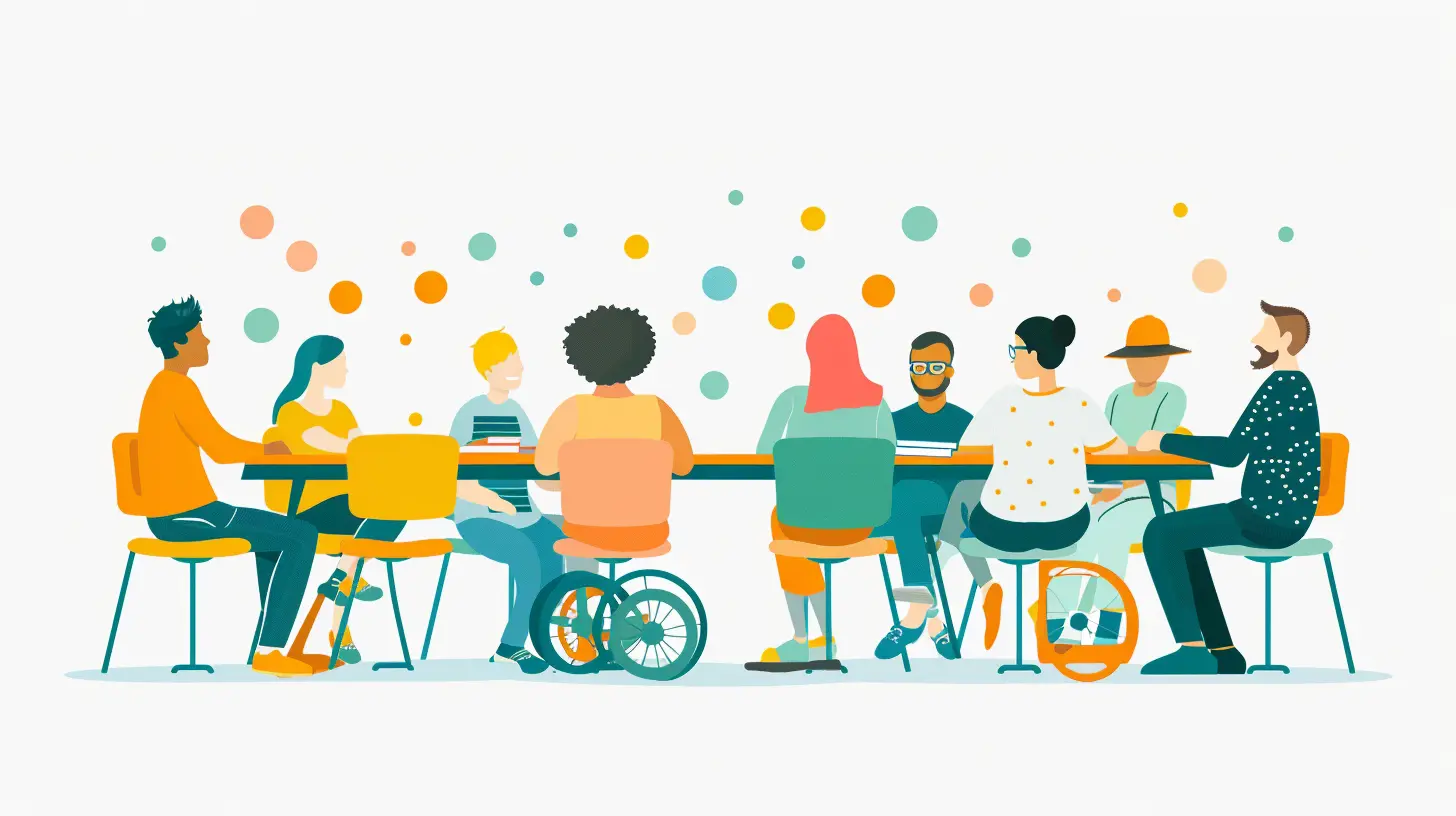The Role of Paraprofessionals in Special Education
24 November 2025
When you walk into a special education classroom, there’s often more going on behind the scenes than meets the eye. Sure, the teacher is leading the way, but there’s another key player who often doesn’t get as much of the spotlight: the paraprofessional. These quietly powerful professionals are the backbone of many special education settings—and honestly, schools couldn't function the same way without them.

Who Are Paraprofessionals, Anyway?
Let's start with the basics. Paraprofessionals (or "paras" for short) are educational workers who support students under the supervision of a certified teacher. In special education, their roles go way beyond just "helping out." They’re part teacher, part coach, part counselor, and sometimes, part superhero.They’re there to assist students with disabilities—be it physical, emotional, behavioral, or cognitive—so they can access the curriculum and thrive in a school environment. Whether it's helping with communication devices, managing behavior plans, or just offering one-on-one academic support, paras are hands-on and heart-in from start to finish.

What Do Paraprofessionals Actually Do?
Well, the short answer is: a lot. But let's break it down.1. Academic Support
Paraprofessionals are often right beside students during classroom instruction. Think of them as learning buddies. They help break down assignments, repeat instructions, and guide students through tasks so they can work at their own pace and level.The goal? To bridge the gap between a student’s current ability and what they’re expected to learn.
2. Behavioral Support
Not every classroom disruption is just a student acting out. Sometimes, it’s a cry for help. Paras often implement behavior intervention plans, track behavior data, and step in when things get tense. They know each student’s triggers and teach them strategies to self-regulate.Ever heard of positive reinforcement, token systems, or sensory breaks? Yeah, paras are masters of those too.
3. Personal Care and Safety
Paraprofessionals also tackle tasks that aren’t exactly in the textbook. We’re talking about toileting, feeding, lifting, or helping with mobility devices. For students with more significant physical needs, paras literally make access to education possible.Think about it: if a student can’t physically get through the school day without support, learning becomes secondary. Paras make it happen.
4. Communication Assistance
Many students in special education use augmentative and alternative communication (AAC) devices. Paras often work closely with speech-language pathologists to help kids use these tools correctly—whether it's a picture card, a speech-generating device, or basic sign language.They’re like translators, bridging the gap between thoughts and spoken words.
5. Inclusion Support
Paraprofessionals are key players in inclusive classrooms. Their presence can turn what could be a stressful experience into a supportive one—both for the student with a disability and their peers. They help kids participate meaningfully in class discussions, group projects, field trips—you name it.It’s not just about being in the room. It’s about being part of the room.

The Emotional Side of the Job
Let’s get real for a second: being a paraprofessional is emotionally intense. There’s the constant balancing act of supporting students while encouraging independence. There’s the patience it takes to explain the same thing ten different ways because a student needs it. And there’s the heartache that comes when a child struggles despite everyone's best efforts.But there’s also something deeply rewarding about watching a student make a breakthrough—no matter how small. Paras are there for the tears, the high-fives, and the magical moments when it all finally clicks.

The Qualities That Make a Great Para
So what exactly makes someone cut out for this work? Well, it’s not all in the training (though that’s important too). Some of the most crucial qualities can’t be taught.- Patience: Because progress takes time—and sometimes that time feels endless.
- Flexibility: No two days are the same. Seriously.
- Empathy: Understanding a student’s world opens the door to real support.
- Team Spirit: Paras work as part of a team—teachers, therapists, parents, and administrators all included.
- Observation Skills: Noticing the little things can lead to big breakthroughs.
Training and Professional Development
Most paraprofessionals don’t just walk into the classroom on Day 1 and magically know what to do. They receive on-the-job training, shadow experienced staff, and often attend workshops on things like behavior management, autism support, and assistive technology.Unfortunately, the level of training varies—a lot. Some districts have comprehensive programs; others, not so much. Many paras call for more consistent opportunities to grow their skills. Investing in training means better outcomes for students, period.
Collaboration with Teachers
If you think of a classroom as a boat, the teacher might be the captain steering the ship—but the para is right there, adjusting the sails, checking the anchor, and keeping everything afloat. Communication between teachers and paraprofessionals is critical. When they’re on the same page, the support provided to students can be seamless.Great teachers know how to delegate, trust, and include paras in planning and decision-making. And great paras? They speak up, ask questions, and bring valuable insight to the table.
Challenges They Face
Let’s not sugarcoat it: paraprofessionals face some pretty big hurdles.- Low wages: Many work full-time hours but take home part-time pay.
- Lack of recognition: Despite their huge impact, they’re often seen as “assistants” rather than professionals.
- Burnout: High emotional demands + low compensation = a recipe for burnout.
These challenges don’t just affect paras—they affect the students they support. If we want to improve special education, we’ve got to support the people who make it run.
Why Paraprofessionals Deserve More Respect
Picture a student with significant needs—maybe they’re non-verbal, need help with basic tasks, and struggle with transitions. Now imagine trying to offer them a quality education without a paraprofessional’s help. Hard, right?Paras are essential, not optional. They deserve respect, fair pay, and ongoing training. Because when they’re empowered, everyone benefits.
The Future of the Paraprofessional Role
The demand for paraprofessionals is growing. As inclusion becomes more common and as the needs of students become more complex, paras are stepping up in bigger and more specialized ways.We're also starting to see more paraprofessionals move into teaching roles through alternative certification programs. That career pathway not only grows their impact, it strengthens the entire education system.
How You Can Support Paraprofessionals
Whether you're a teacher, a parent, an administrator, or just a caring community member, here are a few easy ways to show some para-appreciation:- Say thank you. Seriously, acknowledgment goes a long way.
- Advocate for better wages and working conditions.
- Include paras in meetings and planning sessions.
- Offer professional development opportunities.
- Listen to their insights—they know students in a unique way.
Final Thoughts
Paraprofessionals are unsung heroes in special education. They might not have the most glamorous jobs, but they have some of the most meaningful ones. They work with heart, grit, and so much patience—all for the sake of helping students succeed.So next time you hear the term “para,” think beyond the word. Think advocate. Think supporter. Think game-changer. Because that’s exactly what they are.
all images in this post were generated using AI tools
Category:
Special EducationAuthor:

Anita Harmon
Discussion
rate this article
1 comments
Norah Meyers
Thank you for shedding light on the crucial role paraprofessionals play in special education. Their dedication and support are vital in helping students thrive. Acknowledging their hard work not only benefits the students but fosters a more inclusive and understanding educational environment for everyone.
November 25, 2025 at 4:01 AM

Anita Harmon
Thank you for your thoughtful comment! I completely agree—paraprofessionals are indeed essential to fostering an inclusive and supportive learning environment. Their contributions make a significant difference in students' lives.


